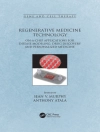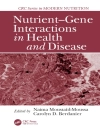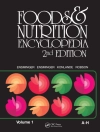Peanuts are among the most popular oilseeds in the world. When their price is considered, they present a competitive advantage in comparison to other nuts such as macadamia, walnuts, hazelnuts, Brazil nuts and cashew nuts. Peanuts are a good source of protein, and, depending on the cultivar, may render amounts of up to 80% unsaturated fatty acids. Tocopherol, also known as vitamin E, is found in high concentration in peanuts. Furthermore, peanuts are recognized by their high polyphenol contents. Phenolic compounds from several classes, namely, phenolic acids, flavonoids, and stilbenes have been identified in peanuts. Polyphenols have antimicrobial, anti-inflammatory, anticarcinogenic, and antioxidant properties. As such, peanuts may be beneficial to consumers through the prevention of chronic diseases. This book discusses information regarding the nutritional and possible nutraceutical potential of peanuts and peanut products, as well as the anticipated impacts of production of new cultivars and processing on their content. The value of peanuts as a source of nutrients and nutraceuticals, and its production is also highlighted and discussed.
Richard W Cook
Peanuts [PDF ebook]
Production, Nutritional Content and Health Implications
Peanuts [PDF ebook]
Production, Nutritional Content and Health Implications
¡Compre este libro electrónico y obtenga 1 más GRATIS!
Formato PDF ● Páginas 182 ● ISBN 9781633210141 ● Editor Richard W Cook ● Editorial Nova Science Publishers ● Publicado 2014 ● Descargable 3 veces ● Divisa EUR ● ID 7224498 ● Protección de copia Adobe DRM
Requiere lector de ebook con capacidad DRM












